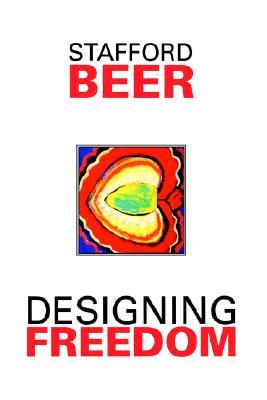Niklas Luhmann: Art as a Social System (1995/2000)
Filed under book | Tags: · aesthetics, art, art system, autopoiesis, communication, cybernetics, perception, romanticism, social theory, systems theory

This is the definitive analysis of art as a social and perceptual system by Germany’s leading social theorist of the late twentieth century. It not only represents an important intellectual step in discussions of art—in its rigor and in its having refreshingly set itself the task of creating a set of distinctions for determining what counts as art that could be valid for those creating as well as those receiving art works—but it also represents an important advance in systems theory.
Returning to the eighteenth-century notion of aesthetics as pertaining to the “knowledge of the senses,” Luhmann begins with the idea that all art, including literature, is rooted in perception. He insists on the radical incommensurability between psychic systems (perception) and social systems (communication). Art is a special kind of communication that uses perceptions instead of language. It operates at the boundary between the social system and consciousness in ways that profoundly irritate communication while remaining strictly internal to the social.
In seven densely argued chapters, Luhmann develops this basic premise in great historical and empirical detail. Framed by the general problem of art’s status as a social system, each chapter elaborates, in both its synchronic and diachronic dimensions, a particular aspect of this problem. The consideration of art within the context of a theory of second-order observation leads to a reconceptualization of aesthetic form. The remaining chapters explore the question of the system’s code, its function, and its evolution, concluding with an analysis of “self-description.”
Art as a Social System draws on a vast body of scholarship, combining the results of three decades of research in the social sciences, phenomenology, evolutionary biology, cybernetics, and information theory with an intimate knowledge of art history, literature, aesthetics, and contemporary literary theory. The book also engages virtually every major theorist of art and aesthetics from Baumgarten to Derrida.
Originally published in German in 1995 under the title Die Kunst der Gesellschaft, Suhrkamp, Frankfurt am Main
Translated by Eva M Knodt
Publisher Stanford University Press, 2000
Meridian: Crossing Aesthetics series
ISBN 0804739072, 9780804739078
422 pages
PDF (updated on 2012-7-17)
Comment (0)Stafford Beer: Designing Freedom (1974)
Filed under brochure | Tags: · cybernetics, systems theory

In this book, Stafford Beer states the case for a science of systems theory and cybernetics.
The collection contains text of six radio broadcasts given in the autumn of 1973 as the thirteenth series of Massey Lectures which were established in 1961 by the Canadian Broadcasting Corporation to enable distinguished authorities in fields of general interest and importance to present the results of original study or research.
Contents: “The Real Threat to All We Hold Most Dear,” “The Discarded Tools of Modern Man,” “A Liberty Machine in Prototype,” “Science in the Service of Man,” “The Future That Can Be Demanded Now”, “The Free Man in a Cybernetic World”.
PDF (updated on 2013-8-10)
Comment (0)Cary Wolfe: Critical Environments: Postmodern Theory and the Pragmatics of the “Outside” (1998)
Filed under book | Tags: · postmodern, systems theory

“Unique in its collation of major theorists rarely considered together, Critical Environments incorporates detailed discussions of the work of Richard Rorty, Walter Benn Michaels, Stanley Cavell, Humberto Maturana, Francisco Varela, Niklas Luhmann, Donna Haraway, Michel Foucault, Gilles Deleuze, Fredric Jameson, and others, and ranges across fields from feminist philosophy of science to the theory of ideology. Offering American readers a comprehensive introduction to systems theory and responding to the widespread charge of relativism leveled against it, Wolfe’s work will enhance and inspire new kinds of critical thought.”
Publisher University of Minnesota Press, 1998
ISBN 0816630194, 9780816630196
175 pages
Keywords and phrases
postmodern, systems theory, Gilles Deleuze, Marxist, Richard Rorty, second-order cybernetics, Niklas Luhmann, autopoiesis, posthumanist, epistemological, poststructuralism, Michel Foucault, Ernesto Laclau, Michael Hardt, Walter Benn Michaels, Stanley Cavell, Fredric Jameson, autopoietic, representationalism, Chantal Mouffe
PDF (updated on 2012-7-27)
Comment (0)
